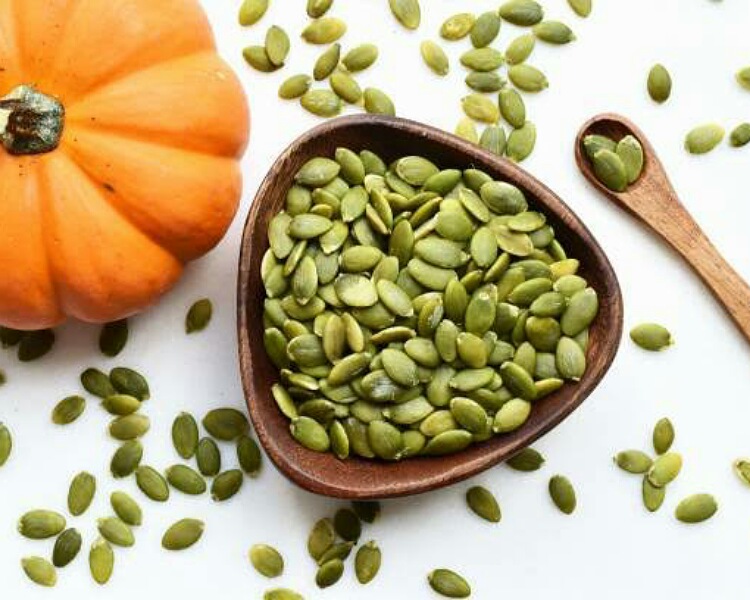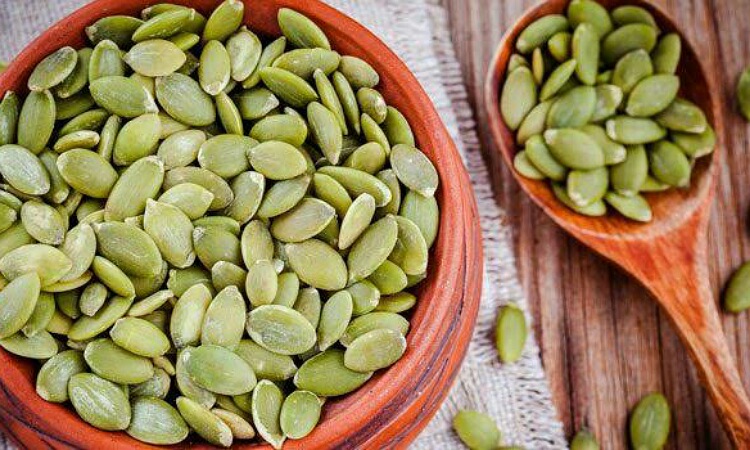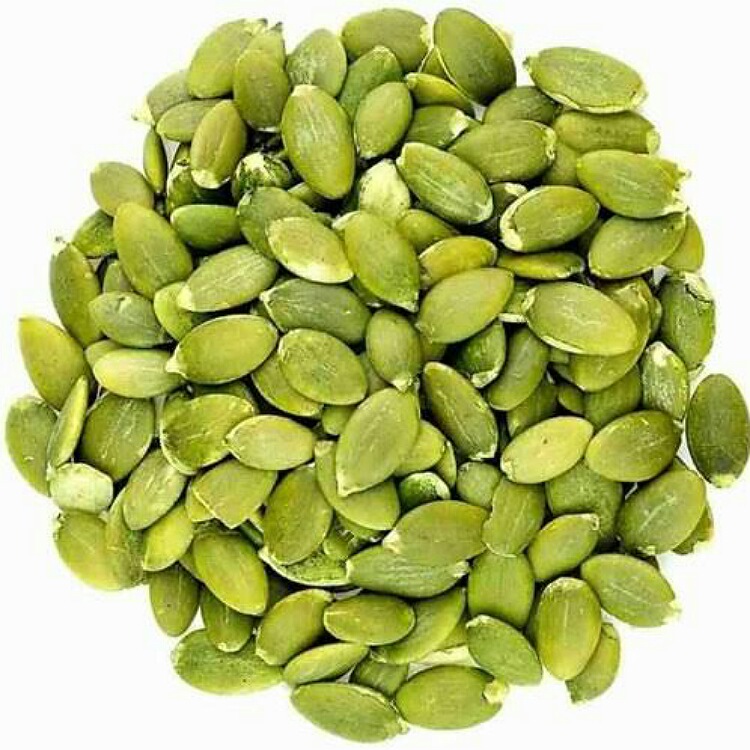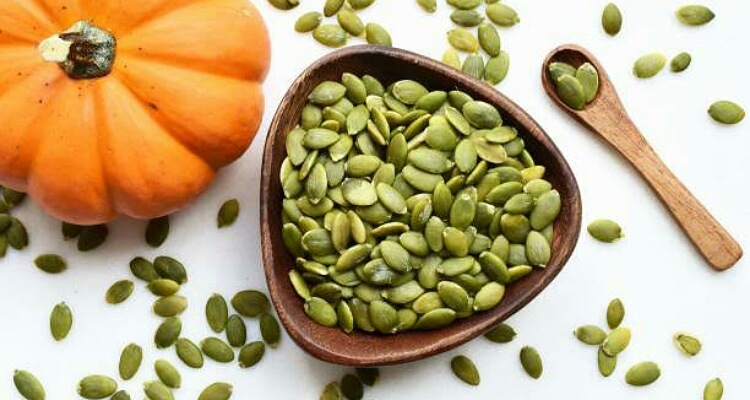Pumpkin seeds or Pepita (as they are called in North America) are the seeds of pumpkin or similar varieties of squash vegetables.
These tiny seeds are rich in zinc, magnesium, and good fats. And they are beneficial for the heart, hair, prostate, and prevention of cancers.
Pumpkin seeds
The seeds inside the pumpkin or squash vegetable are nutritious. In the USA, they go by the term Pepita. This is a Mexican-Spanish term. These seeds are flat, asymmetrically oval, and covered with a hard white shell outside.
When this shell is removed, the seeds are light green. These shell-free seeds are sold at grocery shops and supermarkets in small packets suitable for ready consumption.

Just like the other seeds, seeds of pumpkin are also rich in healthy fats, minerals, and vitamins. They contain fiber and phytochemicals that are good for health maintenance.
These act as antioxidants to lessen the oxidative stress of the body. They serve as scavengers to mop up the free radicals that damage cells and induce aging.
Nutritional value of these seeds
Seeds of pumpkin have good amounts of calories. 100 grams of the seeds have 446 calories. The total fat in these 100 grams is 19 g; out of which only 3.7 grams is saturated.
There is zero cholesterol. Potassium is 919 mg and sodium is just 18 mg. Dietary fiber is 18 grams and protein content is 19 grams. Carbohydrates are 54 grams.
There is iron, magnesium, zinc, manganese, phosphorus, copper, and calcium in it. It also has vitamin K, riboflavin, carotenoids, vitamin E, and folate.

These seeds are enriched with antioxidants. They prevent cell damage, cancers, and body inflammation. The positive effects of these seeds are mainly due to their antioxidant content in it.
Mice fed pumpkin seed oil had reduced inflammation with no adverse effects compared to those who were on an inflammatory drug. The latter group experienced multiple side effects of the drug.
Health benefits
The seeds have innumerable health benefits. These are supported by studies and hence reliable. Eating these seeds reduces the risk of certain cancers such as bowel, breast, stomach, prostate, and lungs.
The incidence of breast cancer in postmenopausal women was lessened by eating these seeds.
It probably could be due to the lignans present in the seeds. In vitro studies revealed its potency in lessening the growth of prostate cancer cells.
Prostate and bladder
These seeds decrease the symptoms of benign prostate enlargement or hyperplasia. Thus bladder function is improved and quality of life was better after eating pumpkin seeds.
They also have a role in the therapy of an overactive bladder.
Pumpkin seeds and heart
Its high magnesium content ensures that the various bodily functions go on normally. Therefore, blood pressure control and heart function are good with these seeds. Blood sugar levels are better and bones are stronger.
Studies have shown that the seeds lessen the risk of heart disease and lower the level of bad cholesterol in the blood. The seeds elevate the levels of nitric oxide in the body. This helps in vasodilation.
Gut health

It is good for the gut and reduces obesity. Its high zinc levels improve sperm quality and hence fertility in men.
Mice studies have also revealed that they protect the sperm from the lethal effects of chemotherapy and autoimmune diseases.
Sleep induction
The seeds are rich in tryptophan. This can help sleep induction. The sleep is also better in quality after it. You can have it raw or roasted with or without salt.
Additionally, you can mix it with smoothies, desserts, or yogurt. You can also add them to salads, soups, or cereals. It is added to bread dough or cake dough.
Also, read 6 healthy seeds that you should incorporate into your daily diet!
They have phytic acid that can reduce the bioavailability of other nutrients in the diet. Roasting, soaking, or sprouting decreases this phytic acid.
